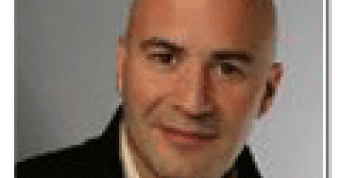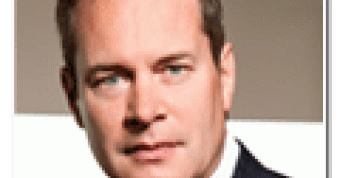The Lighter Side: The Internet Killed the Movie Star
For those in the technology business, the staggering advancements in communications and computational efficiencies that have given rise to the Internet, intelligent portable devices and broadband networks are merely a measure of progress. The potential societal impact of 24/7 access to mind-numbing amounts of information or the staccato of attention-robbing Tweets, IMs and Facebook updates is not a topic of quarterly board meetings. Let the anthropologists and cable TV talk shows debate the benevolence or malevolence of the hyper-connected world we now live in.
And that’s exactly what they are doing.
A glimpse at current daytime television programming or the non-fiction bestseller list provides quick validation that people are talking and writing about the potential pitfalls of technology gone mad or the role that the Internet is playing in reshaping the world – for the better. Depending on the hour or the author, this new age of connectivity is spawning a generation of glassy-eyed social misfits incapable of formulating or processing a thought that cannot be conveyed in 140 characters or less, or its accelerating the advancement of society by enlightening and empowering the masses with information and a means for mass collaboration and unification.
There are even a few commentators who are taking both sides. None other than Randi Zuckerberg, former Facebook executive and sister of the very face of social networking, has penned a screed that espouses the virtues of online technology but also recommends occasionally disconnecting and interacting with the real world.
This is nothing new. The introductions of the car, radio and television were all followed by warnings of how they would devolve the species, as well as exaggerations about their ability to lift society to new heights. Similarly, the pendulum of public opinion focused on the impact of the Internet is destined to modulate between good and evil for the next couple of decades.
Out of this morass of ambiguity, however, emerges one indisputable truth about the impact of the connected age: Hollywood hates it. An old axiom proclaims that every story has already been written and each new one is at its heart a retelling of an existing one. Well, about half of those stories, which eventually become movies, feature plots that hinge upon some sort of misunderstanding or missed opportunity. In an era of Big Data, ubiquitous reach of mobile networks and international eavesdropping, the plausibility of hundreds of would-be blockbusters flies out the window.
A romantic rendezvous on the observation deck of the Empire State Building foiled by a late arrival? You can scrub that scene faster than you can thumb the SMS: “Running late… b there in 10.”
For further evidence of the SAG’s unadulterated enmity for the Internet, consider that at least 10 percent of the America Film Institute’s list of the top 100 movies of all time would have never seen a theater if the screenplays were submitted in the Internet era.
What follows is a sampling of Hollywood classics and the connected age attributes that would have prevented their production.
Citizen Kane
Big Data would have done in what is routinely recognized as the greatest film of all time. Charles Foster Kane would no doubt have had the entire contents of Xanadu photographed and catalog for insurance purposes, including his precious sled. It would have taken an investigative journalist about five minutes to crunch the data necessary to uncover the meaning of “rosebud.”
Casablanca
Pandora scraps this one. This movie never makes it out of the bar, as Rick goes on a three-day bender expanding his musical horizons through exposure to dozens of artists affiliated with the “As Time Goes By” channel.
The Wizard of Oz
Forget the ruby slippers, Dorothy. Google Maps or GPS on your iPhone gets you back to Kansas before a single flying monkey even gets a whiff that you’re in the Emerald City.
It’s a Wonderful Life
So your forgetful uncle loses your bank deposit and sets off an angel-aided rip-off of a Christmas Carol? Never happens with secure electronic banking.
Chinatown
“She’s my sister. She’s my daughter. She’s my sister AND my daughter.” No kidding. Any decent private eye would have figured that out at the start of the movie with a quick trip to Ancestory.com.
West Side Story
This one never reaches the studios because IM obliterates all future derivatives of Romeo and Juliet. “Don’t get all weirded out when you see me. I might look dead, but it’s just this cool sleeping medicine some alchemist whipped up.”
Network
IPTV and multi-play content teamed up to pull the plug on this would-be award winner. You might be tired as heck of your television set, but you can still watch the latest show about attractive vampires on your tablet or smartphone after tossing the telly out the window.
Spartacus
The Romans can’t put a face to enemy number one? Hardly a feasible plot in the era of social networking and self-promotion. No doubt Spartacus’ mug would be beaming from his Facebook, Twitter and LinkedIn pages, not to mention his popular, if sporadically updated, blog on slave revolts.
Easy Rider
You’ve got to be kidding. These two slackers never make it out of their parents’ basement. The closest they come to a real Harley is the online version of MotorStorm: Apocalypse.
The Manchurian Candidate
This screenplay doesn’t even get past the intern. Who is going to believe that a nefarious foreign entity is able to plant a brainwashed agent inside the government without the NSA knowing about it?




